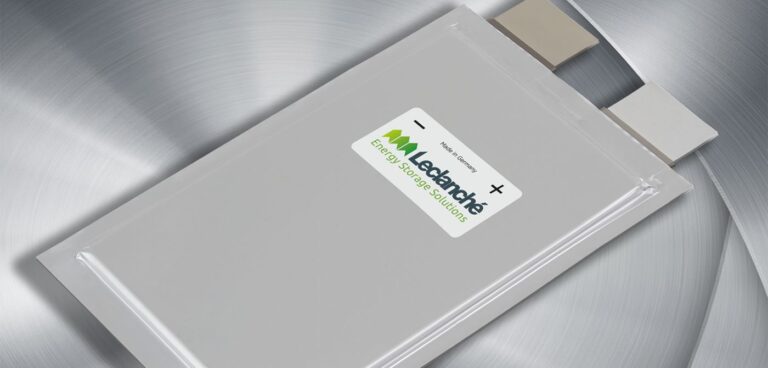French battery manufacturer Leclanché says it has achieved a significant breakthrough in the safety of its lithium-ion batteries without compromising cell performance.
By adding a special fire-retardant additive to its electrolyte formula composition, Leclanché states it has lowered the risk of a thermal event by close to 80%. The achievement has been validated by Intertek Germany, a third-party testing lab which conducted a series of industry standard nail penetration tests on Leclanché’s 60Ah cell. Despite the test cells being punctured, resulting in an internal short circuit, the cells exhibited a far lower risk of fire than the same cells without the flame retardant additives.
“While the entire battery industry continues to place considerable R&D resources into the development of solid-state batteries, there’s a critical need to enhance the safety of today’s high-energy-density lithium-ion cell technology. Most efforts, until now, adversely impact the performance or longevity of cells. Leclanché has been able to develop a high-performance and high-energy-density lithium-ion cell exhibiting high safety characteristics without any negative impact on performance or longevity. As technological advancements continue to be developed, this is a crucial improvement in state-of-the-art cell technology, that does not require breakthrough technology that could still be several years away from commercial availability” said Pierre Blanc, chief technology officer, Leclanché.
The battery cells are manufactured by Leclanché in its production facility in Willstätt, Germany. The cells are made using the company’s proprietary production process. Electrodes are manufactured in a water-based process that has been validated in commercial production over the last 10 years – rather than by using organic solvents such as NMP – resulting in a significantly reduced environmental impact and a lower carbon footprint. Leclanché’s electrodes produced with the water-based manufacturing steps show a high stability towar the flame-retardant additives contained in the new electrolyte, resulting in the maintenance of cell performance.
Anil Srivastava, CEO, Leclanché, said, “Our breakthrough should encourage manufacturers waiting on the sidelines for next-generation solid-state batteries to move forward with their advanced fleet vehicle designs today – safe lithium-ion batteries have arrived and Leclanché has them.”
The company’s new non-flammable cells will be available for production beginning in the first quarter of 2023.


